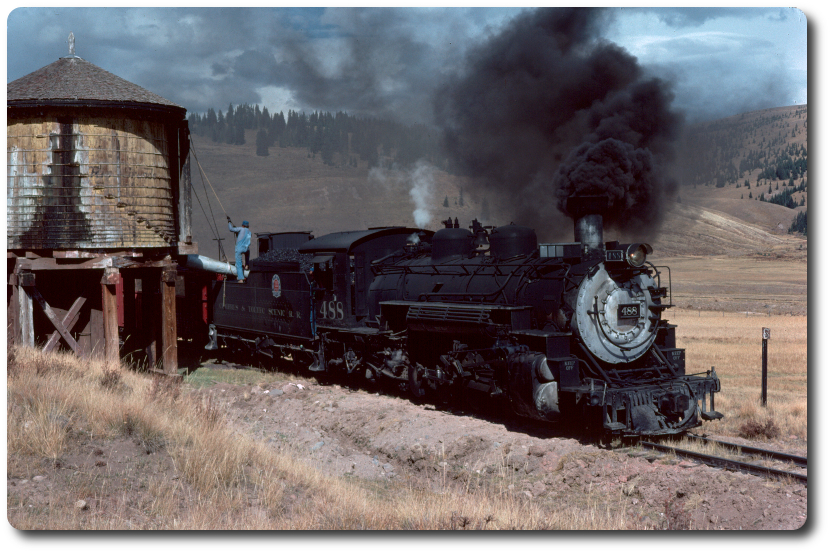A few things are at play here. One is the fact that there are just many more trees now in the narrow gauge country. So much of Colorado's timber was clear-cut in the late 19th century. Case in point...photos of the Georgetown Loop right after construction show almost no trees in the valley. Now certainly there were still heavily timbered locations as well, but they were not as extensive as today.
Another factor is the management of forests. Trees are growing closer together than they used to in a large part due to forest management strategies from the twentieth century. Small burns were typically not allowed and so natural thinning didn't occur.
Now we introduce the pine bark beetle. Between the changes in forest density, introduction of invasive species, and warmer/drier winters, pine bark beetles have managed to kill thousands of acres of forest whereas before the last few decades, they were hardly a major player. And since the beetles move from tree to tree, it's common to see whole stands of dead timber. That's fuel.
There have been documented changes in precipitation patterns over the last few decades as well. As a PhD atmospheric scientist I'm qualified to speak on this topic and am not interested in arguments, but we can't escape the fact that the climate of Colorado (the world, of course, as well) is changing. Some of it is for reasons you expect, but there's another factor at play. Some years ago there was a fascinating paper in the Bulletin of the American Meteorological Society about the changing climate of the West. The point the paper made was that the period of time that the West was settled by white settlers of European descent was the most climactically
stable period the West had experienced in recent geologic history. It was also the wettest. We can reconstruct past climates from a host of data sources...from tree rings to mud and ice core samples to river sediments to fossils and so on. Even the evidence left by the native peoples tell us things about what happened here before we started installing thermometers and rain gauges. The Ancient Puebloans (Anasazi) appear to have abandoned Mesa Verde due to abrupt climate change hundreds of years before the arrival of the white man and the beginning of the industrial revolution. The proxy climate data tell us that the climate of the West should be much more variable, with longer droughts and with more extreme precipitation events than we found here 150 years ago. A good example of this are the water rights on the Colorado River. Completely based on an incorrect and vastly overestimated flow rate. Snowpack is declining in Colorado on average, but the year-to-year variability is greater now than it used to be. Some of that is anthropogenic, but some of that may be the climate system of the West returning toward its more normal, chaotic mode. So...the pine bark beetle finds drier, warmer conditions on average and its population explodes.
___________
Dave Vollmer
Rio Grande Southern in HOn3
Colorado Midland in N scale
Colorado Springs, CO
Edited 1 time(s). Last edit at 06/17/2020 12:04PM by Dave Vollmer.




